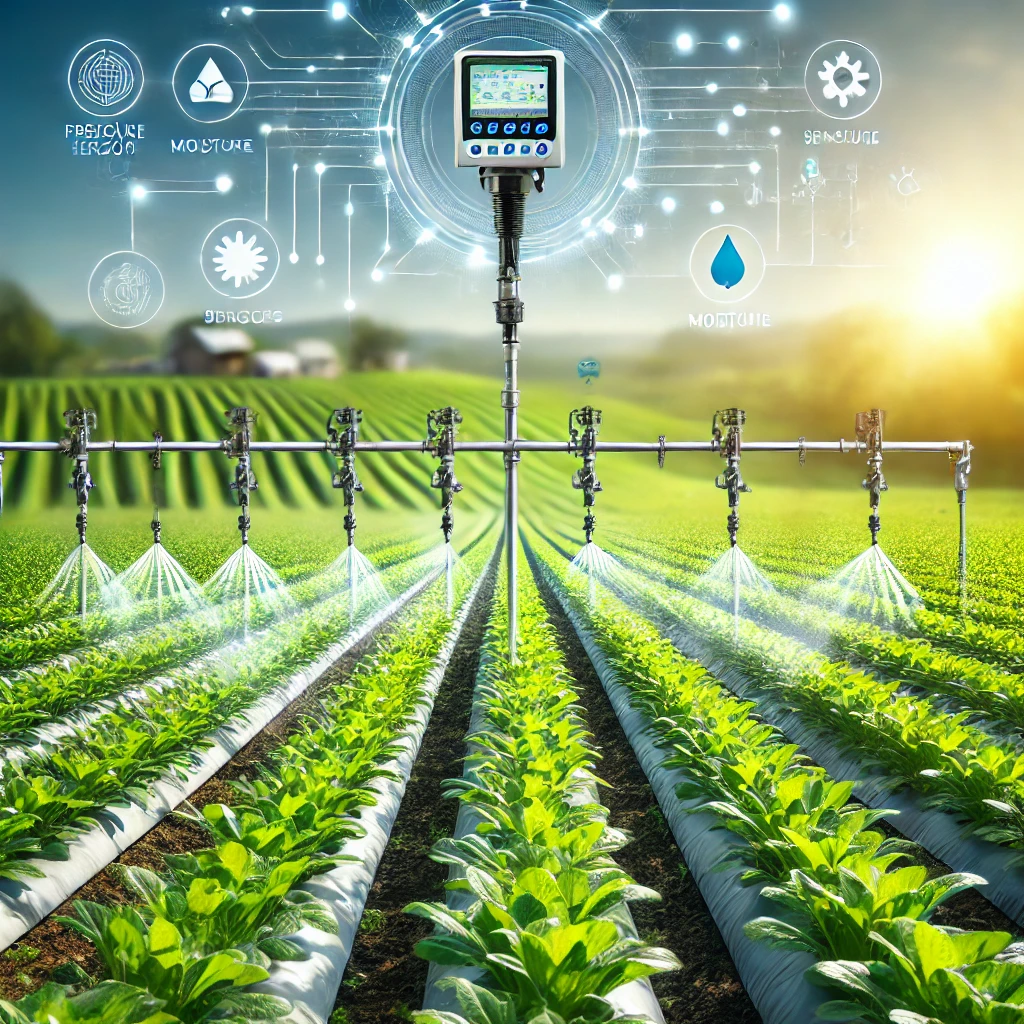The global precision irrigation market, valued at USD 4.18 billion in 2024, is projected to grow to USD 6.29 billion by 2029, with a compound annual growth rate (CAGR) of 8.5% from 2024 to 2029. The growing global demand for precision irrigation is driven by its ability to enhance farming efficiency, boost crop yields, and conserve vital resources. Key factors fuelling this demand include climate change, water scarcity, and the growing emphasis on sustainable agriculture practices. Unlike traditional irrigation methods, precision irrigation optimizes water use by delivering the right amount directly to crops, minimizing waste, and enhancing crop productivity. With the global population expected to reach nearly 10 billion by 2050, according to The World Bank, arable land per person will decrease, making it increasingly difficult to meet food production demands. As resources become more limited and food requirements rise, precision irrigation plays a crucial role in boosting crop yields, conserving water, and ensuring long-term food security.

Precision Irrigation Market Overview
The precision irrigation market has experienced significant growth due to the increasing demand for water conservation, sustainable farming practices, and the need for higher agricultural productivity. This market is characterized by the adoption of advanced technologies and systems that allow farmers to apply water more efficiently and accurately, optimizing crop yield while minimizing resource waste. Below is an overview of the key aspects driving and influencing the market:
Key Drivers:
- Water Scarcity and Drought Conditions: With growing concerns over water scarcity, especially in arid and semi-arid regions, precision irrigation technologies provide a solution for efficient water usage. These technologies help farmers reduce water wastage and ensure crops receive optimal moisture levels.
- Technological Advancements: The integration of smart sensors, automation, and Internet of Things (IoT) devices into irrigation systems allows real-time monitoring and control. These technologies help track soil moisture, weather conditions, and crop health, enabling precise water delivery.
- Government Initiatives and Support: Many governments globally are encouraging the adoption of precision irrigation through subsidies, grants, and policy incentives aimed at enhancing agricultural efficiency and sustainability.
- Sustainability and Environmental Concerns: As environmental concerns rise, precision irrigation technologies are being embraced as part of a broader push for sustainable agriculture practices. These systems help minimize the environmental impact by reducing water runoff, soil erosion, and energy consumption.
Types of Precision Irrigation Technologies:
- Drip Irrigation Systems: These systems deliver water directly to the plant roots in a controlled manner, reducing water wastage. Drip irrigation is widely used in crops like vegetables, fruits, and flowers.
- Sprinkler Irrigation Systems: Advanced sprinkler systems can be controlled automatically, using weather data to adjust the water flow. These systems are ideal for large-scale agriculture.
- Center Pivot Irrigation Systems: This method is commonly used in large fields and can be automated for better efficiency, minimizing water usage.
- Smart Irrigation Controllers: These controllers integrate weather forecasts and soil moisture data to adjust irrigation schedules, leading to optimized water usage.
Future Outlook:
The precision irrigation market is expected to continue growing, driven by technological innovation, increasing demand for food production, and the need for sustainable water use. The rise of digital farming, the use of drones, and data-driven irrigation techniques will likely play a crucial role in shaping the future of precision irrigation. Furthermore, the push toward autonomous farming solutions and the integration of artificial intelligence in irrigation systems will further boost the market’s expansion in the coming years.
Download PDF Brochure:
https://www.marketsandmarkets.com/pdfdownloadNew.asp?id=137052497
Top Precision Irrigation Companies:
The report profiles key players such as Valmont Industries, Inc. (US), NETAFIM (Israel), Hunter Industries Inc. (US), The Toro Company (US), Rain Bird Corporation (US), Lindsay Corporation (US), Rivulis (Israel), HydroPoint (US), REINKE MANUFACTURING CO., INC. (US), AZUD (Spain), T-L Irrigation (US), and Mahindra Irrigation (India).
Valmont Industries, Inc. (US)
Valmont Industries, Inc. is one of the leading companies in infrastructure and water management systems. The company operates through two key segments: Infrastructure and Agriculture. Under the “Valley Irrigation” brand, Valmont manufactures and distributes a wide range of advanced irrigation equipment. The company provides a wide range of irrigation solutions, such as drip, sprinkler, and variable rate irrigation technologies. With around 270 dealers in North America and another 270 across over 60 countries, Valmont Industries, Inc. has built a robust global distribution network for its precision irrigation products.
NETAFIM (Israel)
NETAFIM, based in Israel, is a key player in the precision irrigation industry, offering a wide range of irrigation tools and water technologies. They offer sprinkler irrigation, drip irrigation, fertigation, and mobile drip systems for both agricultural and non-agricultural uses. The company focuses on organic growth through new product development while also exploring partnerships for expansion. For instance, to address the issue of food security, NETAFIM and E20 INVESTMENT LTD signed a Memorandum of Understanding (MoU) in August 2023 in the United Arab Emirates. The purpose of this agreement was to promote sustainable farming practices and improve precision irrigation solutions globally.
Operating in North America, South America, Europe, the Middle East & Africa, and the Asia Pacific region, NETAFIM has over 2,500 employees and three manufacturing facilities. Their focus on sustainability and customer service enables them to provide tailored solutions for both small farmers and large agricultural businesses.
Key Questions Addressed by the Precision Irrigation Market Report:
What is the current size of the precision irrigation market?
What are the key market players, and how intense is the competition?
Which region is estimated to account for the largest share of the precision irrigation market in 2024?
What kind of information is provided in the company profiles section?
What are the factors driving the precision irrigation market?
Schedule a call with our Analysts to discuss your business needs:
https://www.marketsandmarkets.com/speaktoanalystNew.asp?id=137052497
